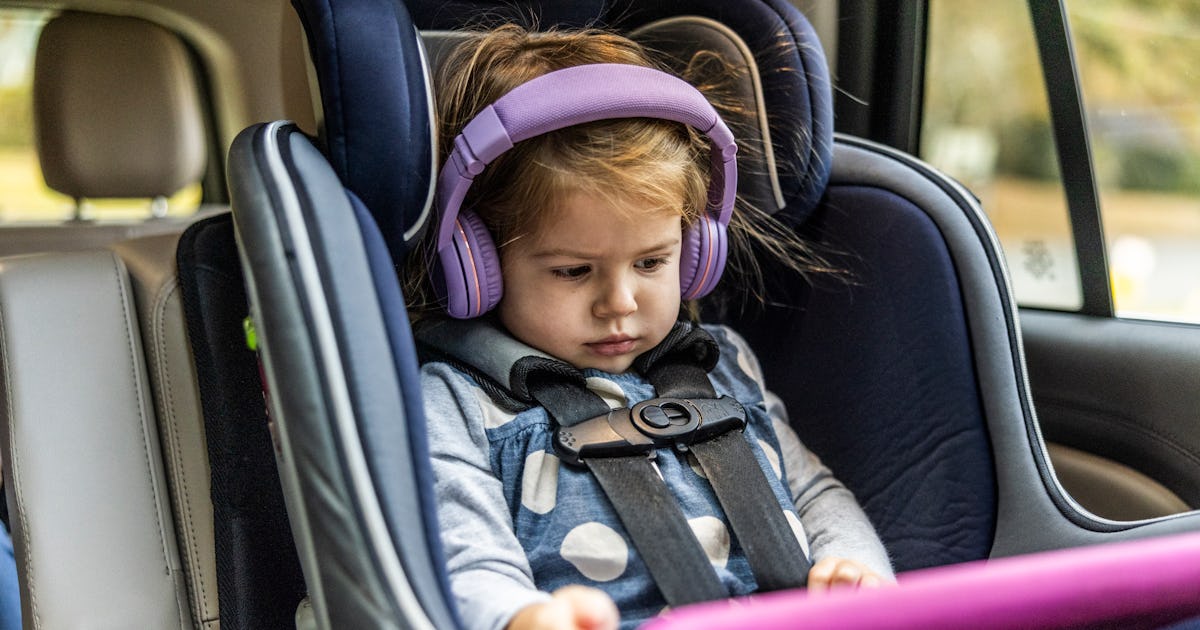
When you have kids, some of the stuff you stressed over putting on your baby registry and lamented buying at all just becomes part of your everyday surroundings. That Ikea play kitchen in the living room and the hulking wagon in the corner barely even register in your brain anymore. That’s kind of how car seats become — just a bulky extension of your car that you use all the time. So, you might be surprised the first time you hear about the fact that they have expiration dates.
That’s right: Car seats expire after a while, and it matters that you remember the date. Here’s everything you need to know about why these products go bad after seven to 10 years.
Do car seats expire?
Yes, and you should take that expiration date seriously, according to Cass Herring, CPSTI, child passenger safety technician and senior director of road safety and child occupant protection at Safe Kids Worldwide. The Manufacturer’s Alliance for Child Passenger Safety, an organization dedicated to the safe use of car seats, says brands stamp seats with expiration dates because:
- Exposure to food, drinks, cleaning products, and other environmental factors can degrade the materials and components of your seat over time.
- Over time, parts may be lost, reinstalled incorrectly after cleaning, or just have some wear and tear from use.
- Instruction manuals may be lost or no longer available online.
- Enhancements in car seat materials, design, safety technology, and more happen all the time, which means regulations and safety standards change, too. Expiration dates help outdated models make their way out of cars.
Can I still use an expired car seat?
Using an expired car seat is not considered safe, and experts don’t recommend it. Essentially, if you want your car seat to do everything it’s advertised to do — like protect your child in a car accident — manufacturers do not guarantee it’ll do its job past the expiration date.
“As with any product, we want to follow the manufacturer’s instructions. They’ve done thorough testing of their products to understand the best uses for them to ensure the optimal safety and protection for the kiddos. It’s really important that we follow those guidelines as well as other recommendations by the car seat manufacturers,” Herring says.
How do I check if my car seat is expired?
You can find your car seat’s expiration date on the base or sides of the seat’s shell. If your car seat’s expiration date is on the base, it’s a good idea to jot that date down in the notes on your phone or somewhere you’ll have access to it without uninstalling the seat.
“They will also have the expiration date in the beginning of the manufacturer’s instructions or the owner’s manual,” Herring says. “If you lose your manual, you can find those online through the manufacturer’s website.”
How many years is a car seat good for?
If you’re buying a car seat new, it will last an average of six to 10 years before expiring, says Herring. The expiration date and timeline depend on the brand of car seat you buy, but again, the user manual will specify your product’s lifespan. If you anticipate having kids close together and want to purchase one that will last a full 10 years, you can usually view a product’s user manual in PDF form on the manufacturer’s website.
Buying a car seat secondhand is where things can get sketchy, and it’s not really something experts recommend. Sure, you can check the expiration date on the seat, but you need to know some important things about the seat’s history to ensure it hasn’t been degraded. For that reason, getting a hand-me-down car seat from a trusted friend or family member is better than buying one used from a stranger, Herring says.
“If you’re getting a seat that has been used by somebody, ask questions. Ask if they know the history, if it was purchased new, and are all of the parts there? Has it ever been in a crash? Ask how it was stored to ensure it wasn’t in an area where mold could have grown. Going through those questions helps you understand if you have everything needed for the car seat to perform properly.”
Last, but just as critical: Always check to see if the seat you’re inheriting has been recalled. You can visit the Consumer Product Safety Commission’s recall database and search for your car seat’s make and model. The National Highway Traffic Safety Administration has a database you can cross-check, too.
This article was originally published on scarymommy.com.

